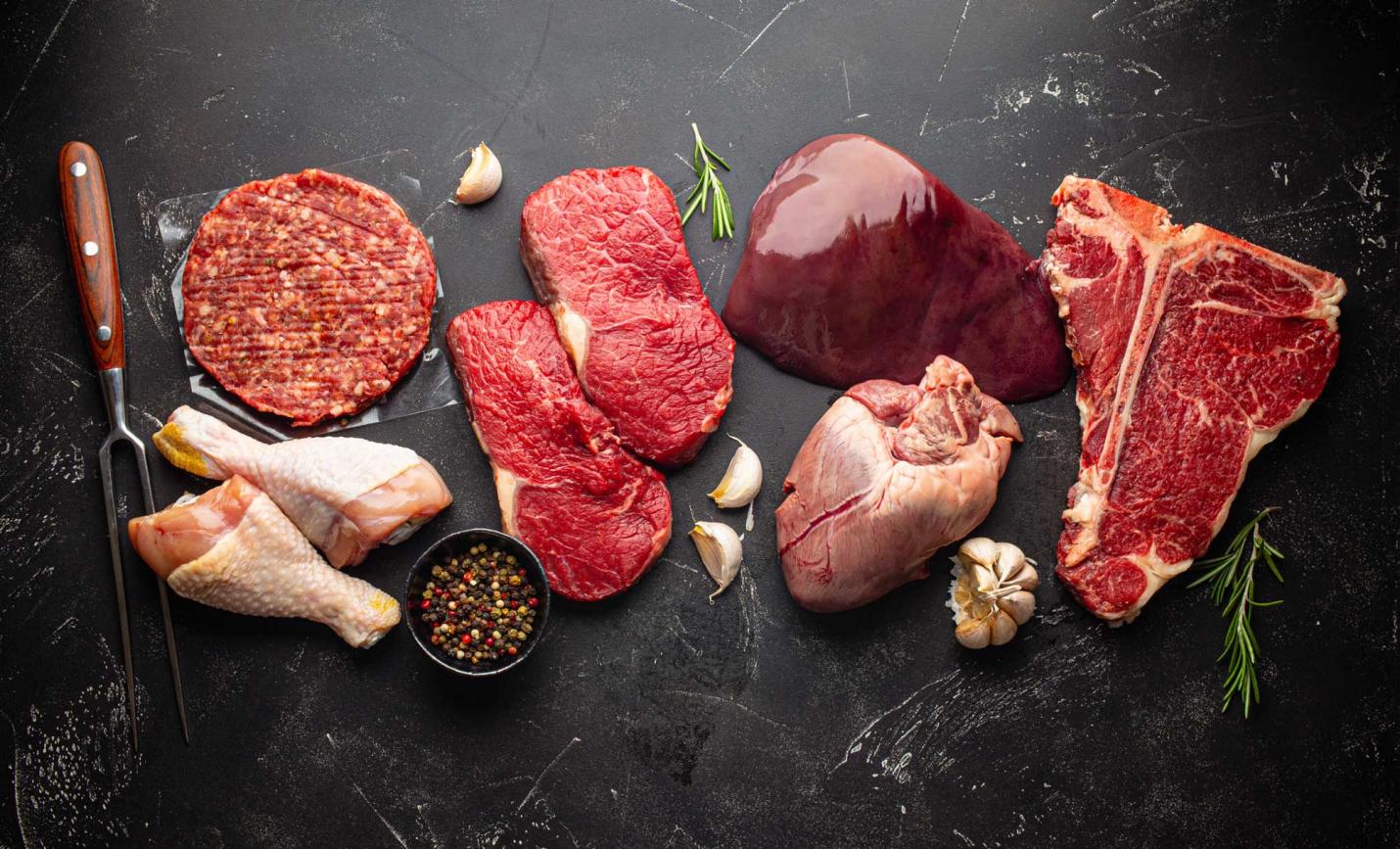
People in today's world are increasingly concerned about their health and are experimenting with various diets to keep fit. The carnivore diet is one of the most popular diets right now.
The Carnivore Diet, also known as the all-meat diet or zero-carb diet, is a diet that consists of solely eating animal products such as meat, fish, and eggs while avoiding all plant-based items such as grains, fruits, and vegetables.
Proponents of the carnivore diet argue that it can help with weight loss, digestion, energy, and inflammation. However, this challenged diet has its critics, claiming it lacks key nutrients and can harm one's general health.
In this guide, we'll explore everything you need to know about the carnivore diet, including its potential benefits, risks, and how to follow it safely.
What Is The Carnivore Diet?
The carnivore diet is a nutritional plan that only consumes animal items such as meat, fish, eggs, and dairy. It is a high-fat, low-carbohydrate diet that excludes all plant-based foods such as fruits, vegetables, grains, legumes, nuts, and seeds.
The carnivore diet is based on the belief that humans developed as hunters and gatherers and that our forefathers subsisted mainly on animal-based foods. Diet supporters say that our bodies are better adapted to digesting and using animal products and that plant-based meals can be damaging to human health.

What to Eat on the Carnivore Diet?
You can consume any form of meat on the carnivore diet, including beef, pork, lamb, chicken, turkey, and fish. Organ meats like liver and kidneys are also recommended since they include nutrients such as iron and vitamins A and B.
The carnivorous diet also allows eggs and dairy items such as cheese and butter. However, other carnivore dieters avoid dairy since it contains lactose, a type of sugar present in milk that some people have problems digesting.
What Foods are not allowed on the Carnivore Diet?
The carnivore diet eliminates all plant-based foods, including:
Fruits: apples, bananas, berries, citrus fruits, etc.
Vegetables: broccoli, cauliflower, spinach, kale, carrots, etc.
Grains: rice, wheat, oats, corn, etc.
Legumes: beans, lentils, chickpeas, etc.
Nuts and seeds: almonds, walnuts, peanuts, pumpkin seeds, etc.
The carnivore diet does not allow beverages, including sugary drinks, fruit juices, and most alcoholic beverages. Water, coffee, and tea are typically allowed, but some carnivore dieters also choose to eliminate caffeine.
Potential Benefits of the Carnivore Diet
Proponents of the carnivore diet claim that it can lead to a range of health benefits, including:
Weight loss: By eliminating carbohydrates, the body is forced to burn fat for energy, which can lead to weight loss.
Improve energy levels: The high-fat, low-carbohydrate nature of the diet can provide sustained energy throughout the day.
Improve digestion: Another benefit of the carnivore diet is improved digestion. Proponents of the diet argue that plant-based foods are complex for our bodies to break down and can cause digestive issues ranging from bloating to irritable bowel syndrome.
Even though it's true that some plants, such as those heavy in fiber, might cause digestive problems in some people, avoiding all vegetables is not a healthy or sustainable option.
Reduce inflammation: Eliminating potentially inflammatory plant-based foods may reduce inflammation in the body.
Improve blood sugar control: Since the carnivore diet eliminates all carbohydrates, it may improve blood sugar control and insulin sensitivity in people with type 2 diabetes.
Improve mental clarity: Some people report improved mental clarity and focus on the carnivore diet.
 However, it's important to note that the carnivore diet is highly restrictive and eliminates many vital sources of nutrients, such as fiber and specific vitamins and minerals.
However, it's important to note that the carnivore diet is highly restrictive and eliminates many vital sources of nutrients, such as fiber and specific vitamins and minerals.
Potential Risks of the Carnivore Diet
While the carnivore diet may offer some potential benefits, it also has several possible risks and drawbacks, including:
Nutrient deficiencies: A carnivore diet lacks many essential nutrients that are found in plant-based foods, such as fiber, vitamin C, folate, and potassium. Over time, this can lead to nutrient deficiencies and health problems, such as scurvy.
Increased risk of heart disease: A diet high in saturated fat found in many animal products can increase the risk of heart disease and other health problems.
Increased risk of cancer: Some studies have linked high consumption of red and processed meats to an increased risk of certain types of cancer, such as colorectal cancer.
Gut health issues: A diet lacking in fiber can lead to constipation and other gut health issues.
Difficulty maintaining the diet: A carnivore diet can be challenging to maintain long term, as it restricts many foods and food groups and can be expensive and time-consuming.
Finally, because the diet is so restrictive and eliminates entire food groups, it can be challenging to stick to in the long run, leading to a risk of weight cycling.
Overall, the carnivore diet may offer short-term benefits for some people but is not sustainable or healthy long-term.
How to Follow a Carnivore Diet
Speaking with a medical practitioner before embarking on the carnivorous diet is essential. Ensure you're getting all the nutrients you need to be healthy.
It's also good to start carefully by eliminating non-meat meals like grains, fruits, and vegetables. Choosing high-quality animal products such as grass-fed beef, wild-caught fish, and organic poultry is also critical.
Alternatives to the Carnivore Diet
There are plenty of alternatives if you’re interested in a high-protein, low-carb diet but are hesitant to try the carnivore diet.
For example, the ketogenic diet emphasizes healthy fats and excludes most carbohydrates but still includes a variety of plant-based foods. Similarly, a paleo- or whole-food-based diet focuses on whole, unprocessed foods, including animal- and plant-based options.
Conclusion
The Carnivore Diet may be a tempting solution for those seeking quick weight loss or relief from digestive issues. However, there are better solutions than this for most people.
A balanced diet that includes a variety of plant-based foods is the best way to achieve optimal health and reduce the risk of chronic diseases. Before starting any diet, it's always best to consult with a healthcare professional to ensure you're receiving all the nutrients necessary for a healthy body and mind.
Hence, if you're considering trying the carnivore diet, start slowly and ensure that you track your progress and adjust your diet accordingly. Remember, the best diet is one that is sustainable and enjoyable for you.



